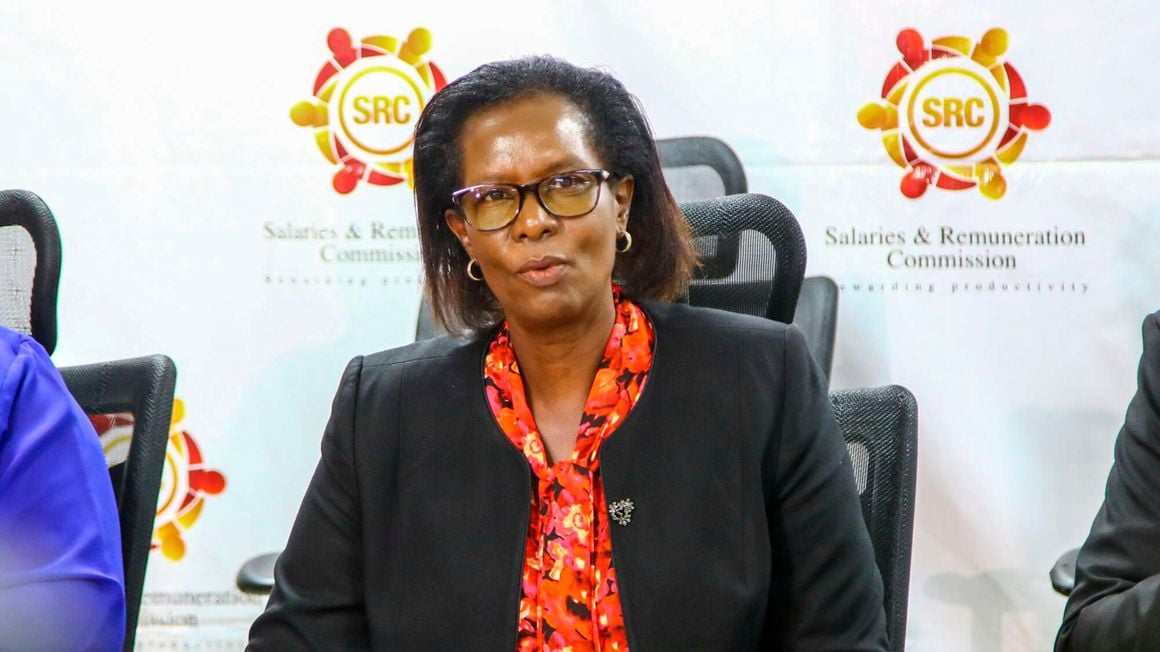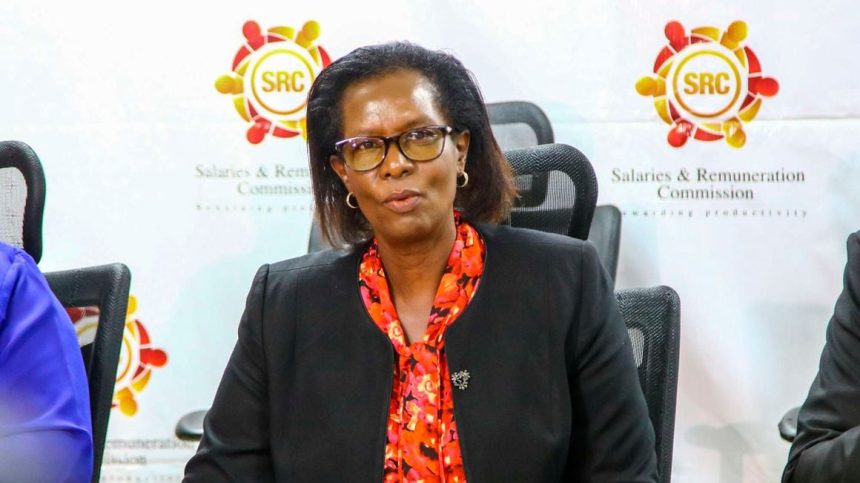The Salaries and Remuneration Commission (SRC) will press on with the planned review of salaries for all public sector workers, including State officers, despite public remarks by President William Ruto advising against any pay increments for the highly paid senior officials.
The commission, which is independent of the Executive under the Constitution, said it will continue seeking public comments on the proposed review until July 13 before gazetting the new salary structure for State officers later this month while advising on adjustments to other public officers.
The SRC said it has accommodated the President’s remarks, likening them to any other comments made at the public participation stage.
“We are in the process of public participation, the President has a role as well in terms of giving the commission his views and his feedback. In that capacity, the President has given us his views so have employing entities,” SRC chairperson Lyn Mengich said.
On Friday, William Ruto directed the SRC to freeze wage increases for State officers arguing this could widen the pay disparity.
“It is not right for the people at the top to earn more than 100 times more than those at the bottom,” President Ruto said.

The SRC, however, argues that individual State officers can reject the salary increases as a personal prerogative.
“We must separate the role from the specific State officer. We set pay for a job and not an individual and therefore a person can choose not to take the pay rise,” Ms Mengich said.
The SRC maintains that its review of the gross monthly remuneration for State officers adheres to international standards where the average monthly pay sits below the median income for comparable roles in the civil service.
The SRC lists five broad salary structures — State officers, teaching service, civil service in national and county governments and other public officers.
The average gross monthly income for State officers sits below the median or 50th percentile of comparable wages in the entire civil service warranting the upward review in wages, says the commission.
The SRC targets having the average wage for public officials in the middle of what is offered in the labour marketplace.
For instance, if the SRC is setting pay for drivers and establishes that half of the drivers in the industry earn Sh50,000, the commission would recommend adjusting the salaries of drivers in public service towards the Sh50,000 mark if they sit below this point.
State officers, workers in both the national and county governments and the teaching service, including public universities, will qualify for the upwards review in remuneration as average wages in the sector are below the medium or 50th percentile.
Workers in State corporations and other public officers, including secretariat staff in commissions and independent offices, will however see their salaries retained at current prices as the average wage in the sector would stand above the median — the SRC’s sweet spot for compensation to public officers.
State officers will see an 8.0 percent increase in their pay from this month and a further 7.0 percent from July 2024.
Other public officers will meanwhile see a 9.0 percent and 7.0 percent mean increase in compensation across the two years.
This is inclusive of an automatic increase at an average of 3.0 percent per year.
The Treasury has allocated a total of Sh45.2 billion, split equally across the 2023/24 and 2024/25 financial years, to fund the salary increase.
Teachers have the bulk of the allocation at Sh17.8 billion ahead of civil servants in national and county governments at Sh14 billion and other public officers at Sh12.21 billion.
Salary increases to State officers will meanwhile cost Sh1.1 billion in the two years.
The compensation review is expected to push the wage bill higher from the Sh1.055 trillion projected at the end of the financial year to June 2022.
The SRC estimates the total number of public service employees is 963,200, with the average monthly gross salary at Sh90,153.
The wage bill is estimated to continue growing in absolute terms given Kenya’s status as a developing nation, which requires it to continue adding jobs in key sectors such as education, healthcare and security.
The SRC is, however, betting on the enforcement of productivity measures to see salaries to workers as a share of government revenue contracts even as it rises nominally.



